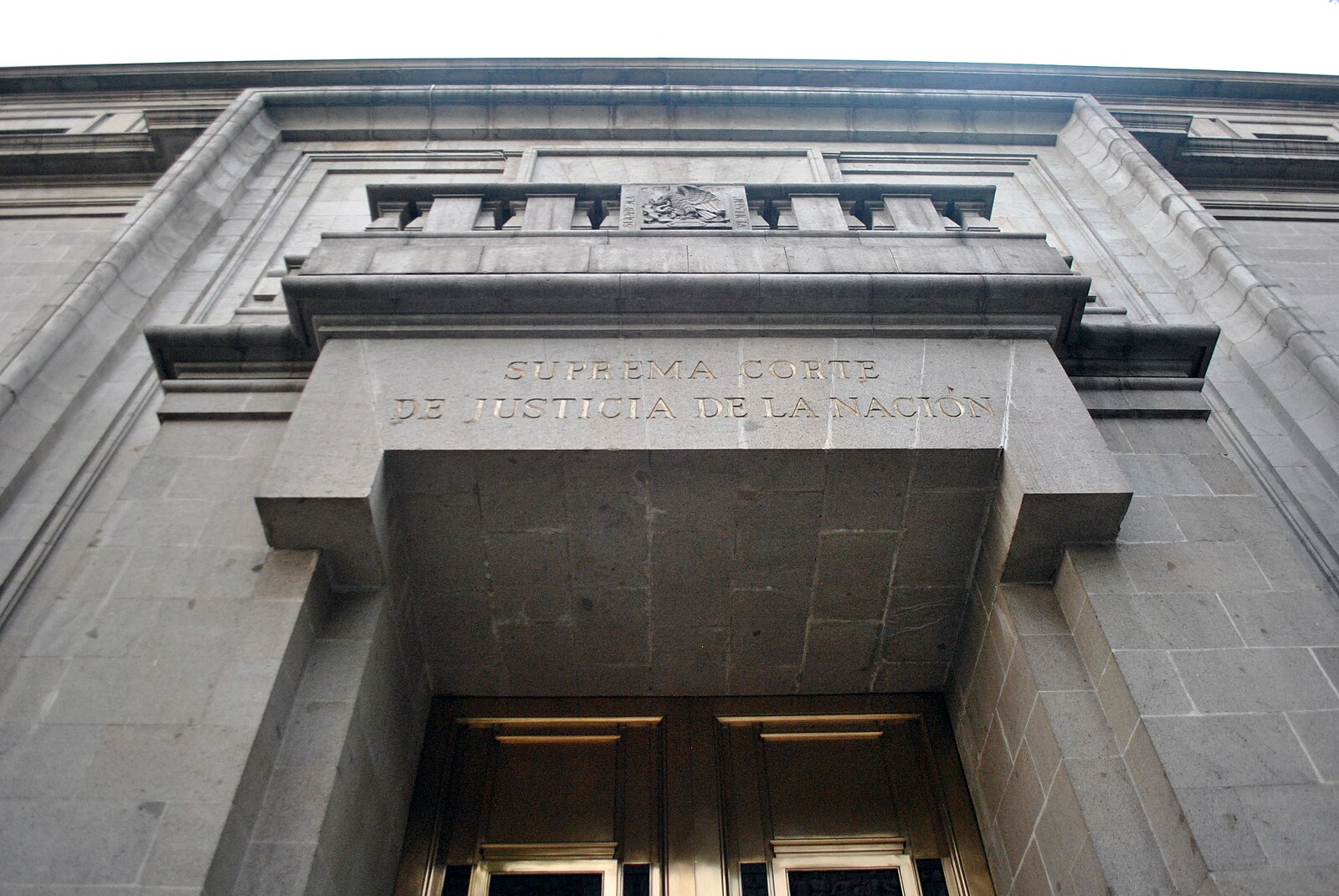From Reform to Risk: How Mexico’s Judicial Overhaul is Driving Business Towards Arbitration

By Alondra Lopez Barrera*
Mexico has become the first country in the world to elect its entire judiciary, including its Supreme Court justices, through popular election.[1] On September 15, 2024, Mexico enacted an unprecedented judicial reform that overhauled the judiciary.[2] The country has shifted from a merit-based appointment system to one of popular election and supplanted its judicial council with an administrative body and a judicial disciplinary tribunal.[3] After a contentious election, the first phase of the judicial reform took life on September 1, 2025, as more than 2,600 federal and local judges, including all nine justices of Mexico’s Supreme Court of Justice of the Nation (“SCJN”), were sworn in to begin their new roles.[4]
Mexican leaders tout the judicial reform as a democratic milestone that will root out corruption and better reflect the country’s constituency. [5] Yet, legal practitioners, businesses, and investors alike are unconvinced, citing legal unpredictability, market volatility, and growing loss of faith in the rule of law.[6] Pointing to a haphazard vetting process, purging of institutional knowledge, and a widespread lack of experience in commercial matters among the new judges, experts have warned that Mexico’s judiciary will now be more vulnerable than ever to criminal influence and institutional corruption.[7]
Judicial stability is a key factor in promoting investment and cross border transactions. This judicial overhaul, therefore, raises pressing questions about predictability and fairness in commercial disputes. As SCJN begins its first term, the court itself is on trial. SCJN’s inaugural cases, concerning commercial and constitutional issues on tax evasion, Mexico’s mandatory pretrial detention policy, and militarization of civilian government operations, are scheduled to be heard in the upcoming weeks. [8] With judges now accountable to voters rather than precedent, businesses are not waiting for the results of this judicial litmus test. To circumvent the judicial volatility, companies have begun seeking protection through alternative jurisdictions and are increasingly turning to arbitration as a reliable option for resolving commercial disputes involving Mexican parties.[9]
Legal professionals and consultants in the bankruptcy and restructuring sectors have noted that distressed debtors lack confidence in the Mexican judiciary’s ability to enforce key bankruptcy processes, mainly because of the difficulty in finding “a bankruptcy judge with any experience after judicial reforms swept the country.”[10] Practitioners cite In re Mega Newco Ltd., as an example of Mexican companies seeking out different jurisdictions in light of the reform.[11] Mega Newco Limited, a U.K.-based subsidiary, was created solely to assist its parent company through its restructuring scheme.[12] After initiating bankruptcy proceedings in the U.K., United States Bankruptcy Court for the Southern District of New York granted the Mexican industrial and financing group Chapter 15 recognition earlier this year.[13]
Although Mexico has a longstanding pro-arbitration stance, experts are urging parties to ensure their “contracts with Mexican counterparties contain clear and comprehensive arbitration provisions,” to review existing agreements subject to Mexican laws, and, if possible, to “renegotiate dispute resolution provisions in light of the new judicial landscape.”[14] As more businesses consider arbitration to avoid Mexican courts, American arbitration providers are expanding to accommodate the expected rise in arbitration in cross-border litigation.[15] However, arbitration has its limits: it can be expensive, unavailable to parties lacking arbitration clauses, and certain arbitral rulings must return to Mexican courts for final approval and enforcement.[16]
As experts continue to guide businesses through the implications of the reform, whether arbitration will become the preferred mechanism for managing cross-border disputes in Mexico remains to be seen.
* J.D. Candidate, Class of 2027, Sandra Day O’Connor College of Law at Arizona State University
[1] Eyder Perlta & A Martinez, Mexicans Went to the Polls on Sunday to Elect Thousands of Judges for the First Time, NPR (June 2, 2025, at 4:13 AM), https://www.npr.org/2025/06/02/nx-s1-5418060/mexicans-went-to-the-polls-on-sunday-to-elect-thousand-of-judges-for-the-first-time.
[2] DECRETO por el que se reforman, adicionan y derogan diversas disposiciones de la Constitución Política de los Estados Unidos Mexicanos, en materia de reforma del Poder Judicial, Diario Oficial de la Federación, [DOF] 15-09-24 (Mex.), formato HTML, https://www.dof.gob.mx/nota_detalle.php?codigo=5738985&fecha=15/09/2024#gsc.tab=0 (consultada el 13 de octubre de 2025) (Mex.).
[3] Id.
[4] Mexico News Daily Staff, Mexico’s New Supreme Court Takes the Bench, Mexico News Daily (Sept. 1, 2025), https://mexiconewsdaily.com/news/mexicos-new-supreme-court-takes-bench/.
[5] Ryan C. Berg & Natalia Hidalgo, No Checks on Power? The Effects of Mexico’s Judicial Reform on Foreign Investment and the USMCA, Ctr. for Strategic and Int’l Stud. (July 9, 2025), https://www.csis.org/analysis/no-checks-power-effects-mexicos-judicial-reform-foreign-investment-and-usmca.
[6] Id.
[7] David Shirk, Mexico’s 2024 Judicial Reform: The Politicization of Justice, Wilson Ctr. (Mar. 20, 2025), https://www.wilsoncenter.org/article/mexicos-2024-judicial-reform-politicization-justice.
[8] Jacques Coste, Mexico’s New Supreme Court Faces Defining Tests, Americas Q. (Aug. 27, 2025), https://www.americasquarterly.org/article/mexicos-new-supreme-court/.
[9] Luis Asali, Santiago Escabar, Felipe Solis & Bernardo de Llaca, Mexico: Judicial Reform: Implications for the Country’s Arbitration-Friendly Position, Glob. Arb. Rev. (July 18, 2025), https://globalarbitrationreview.com/review/the-arbitration-review-of-the-americas/2026/article/mexico-judicial-reform-implications-the-countrys-arbitration-friendly-position.
[10] Hilary Russ, ABI Meeting Covers Chapter 11s, Trump, Cross-Border Issues, LAW360 (June 18, 2025, at 9:32 EDT), https://www.law360.com/bankruptcy-authority/articles/2354979.
[11] Douglas Deutsch, The Case for Good Forum Shopping: Insights from Mega Newco, Clifford Chance (Mar. 5, 2025), https://www.cliffordchance.com/briefings/2025/03/the-case-for-good-forum-shopping–insights-from-mega-newco.html.
[12] In re Mega Newco Ltd., No. 24-12031 (MEW), 2025 WL 601463, at *1 (Bankr. S.D.N.Y. Feb. 24, 2025).
[13] Id. at *4.
[14] Hunter T. Carter, Riyaz Dattu, Malcolm S. McNeil, Emily B. Lewis, & Jai Williams, Navigating Mexican Judicial Reforms and the Importance of Arbitration for Businesses in 2025, ArentFox Schiff (July 3, 2025), https://www.afslaw.com/perspectives/international-arbitration-dispute-resolution-blog/navigating-mexican-judicial-reforms.
[15] James Mills, JAMS Opens International Arbitration Center in Houston, LAW360 (June 12, 2025, at 10:13 AM), https://www.jamsadr.com/blog/2025/jams-opens-international-arbitration-center-in-houston.
[16] Berg & Hidalgo, supra note 6; see also Cyrus R. Vance Center for International Justice, Judicial Reform in Mexico: A Guide for Companies on Implications and Risks, Vance Center (Jan 2025), https://www.vancecenter.org/wp-content/uploads/2025/01/VC-Guide-Judicial-Reform-in-Mexico-1.28.25.pdf.


